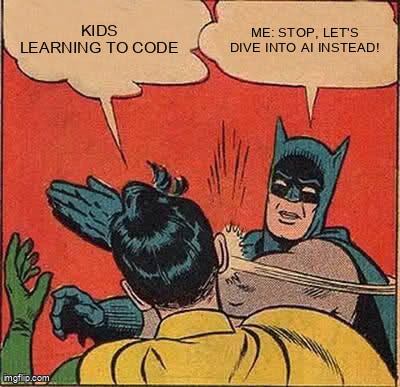But lately I’ve settled on one truth I can tell my kids:
The world our kids will grow up in won’t need coders, programmers, or software engineers anymore. And today, I want to tell you why most people are mistaken about their views of the future of these disciplines. And what, instead, will the drivers of the future be: brute force and energy consumption?
Why I Stopped Teaching My Kids How To Code - And Why You Should, Too!
Why the future will be a future of energy wars, why software engineering as a discipline will disappear (and why the common wisdom is wrong)
This newsletter is brought to you by “The 7 Data Product Strategies” - the ebook for product managers and entrepreneurs who want to build amazing data-heavy products.
Recent praise for the book: "I love how Sven is looking at data and data strategy from a different angle - as a business opportunity. He gives some great tips on how to find these valuable datasets within your company and then how to take advantage of them. But these proposals are not technical in nature, he analyses the problem from the business model perspective.” - Jacek Majchrzak, Lead Architect, Facilitator & Data Wizard
HERE IS ONE EXCERPT:
3. For Nations: Geopolitical and Economic Shifts
the next great power struggle will be fought not over oil or rare earth minerals, but over the energy needed to fuel the AI revolution.
This shift is set to redefine global politics and economics in ways we're only beginning to understand.
The parallels with the oil wars of the 20th century are striking.
- Just as control over oil reserves shaped global power dynamics for decades, access to abundant, cheap energy is poised to become the key determinant of national competitiveness in the AI era.
- As Vaclav Smil, renowned energy scientist, puts it, "The history of civilization is a history of energy transitions."
- We are now witnessing the dawn of perhaps the most significant energy transition yet.
In this new landscape, traditional measures of national power - GDP, military might, or even technological prowess - may take a backseat to a nation's capacity to produce and distribute energy.
Countries blessed with abundant energy resources, or those able to innovate in energy production, stand to gain a significant edge.
In this context, the nations that control the "electricity" will control the future. Consider the case of China.
- Already a leader in AI research, China is also the world's largest producer of renewable energy.
- This combination could prove potent, potentially allowing China to leapfrog other nations in AI capabilities.
- This shift is likely to exacerbate global inequalities, creating a widening AI divide.
- Nations with limited energy resources or underdeveloped infrastructure may find themselves left behind in the AI race.
- The challenge for these countries will be immense: how can they compete in a world where AI-driven productivity becomes the primary engine of economic growth?
As we stand at the precipice of this AI-driven future, let's return to our gold mining analogy. The shift we're witnessing in software development isn't just about automation—it's a fundamental replacement of human sophistication with brute computational force, much like how we transitioned from manual gold panning to energy-intensive industrial extraction.
Sam Altman's vision of billion-dollar startups run by single individuals is rapidly becoming a reality. In this new paradigm, energy truly becomes the currency of innovation. The pioneers of this new digital frontier won't necessarily be the most brilliant coders or the largest tech conglomerates. Instead, they'll be those who can most effectively harness and direct AI's brute force capabilities.
Imagine a day in 2030:
So, what do I teach my kids today?
Making your business smarter with data & AI.





No comments:
Post a Comment